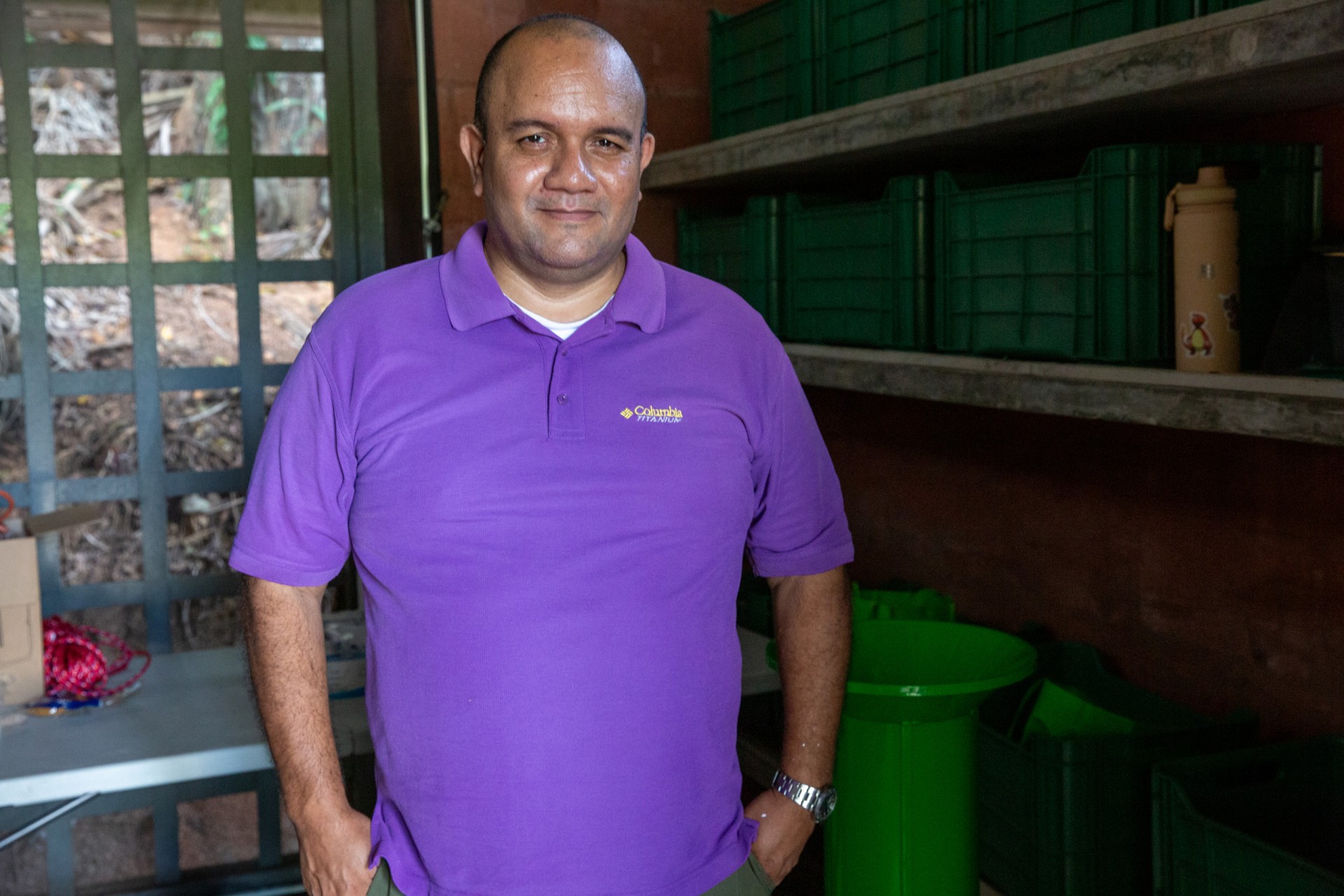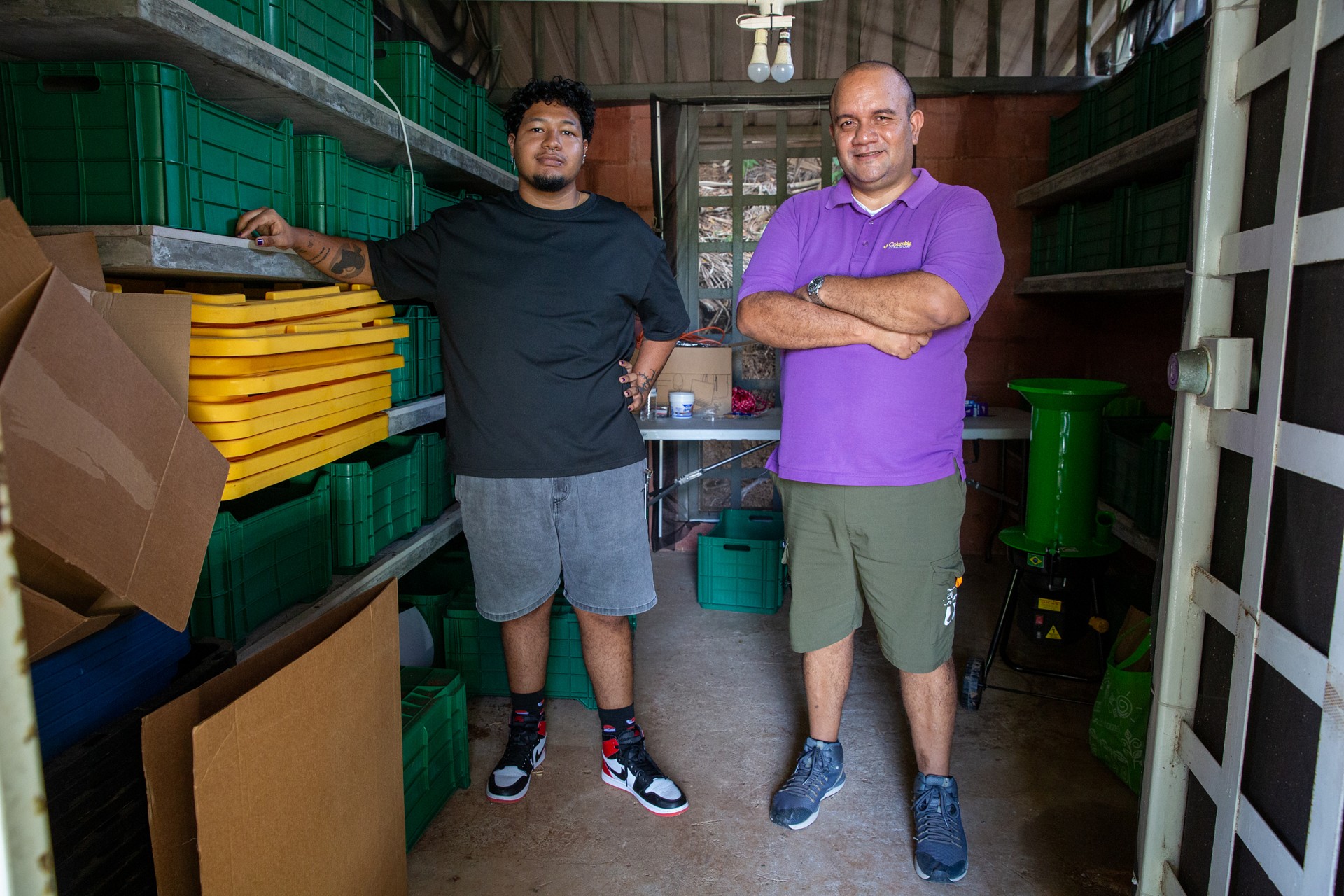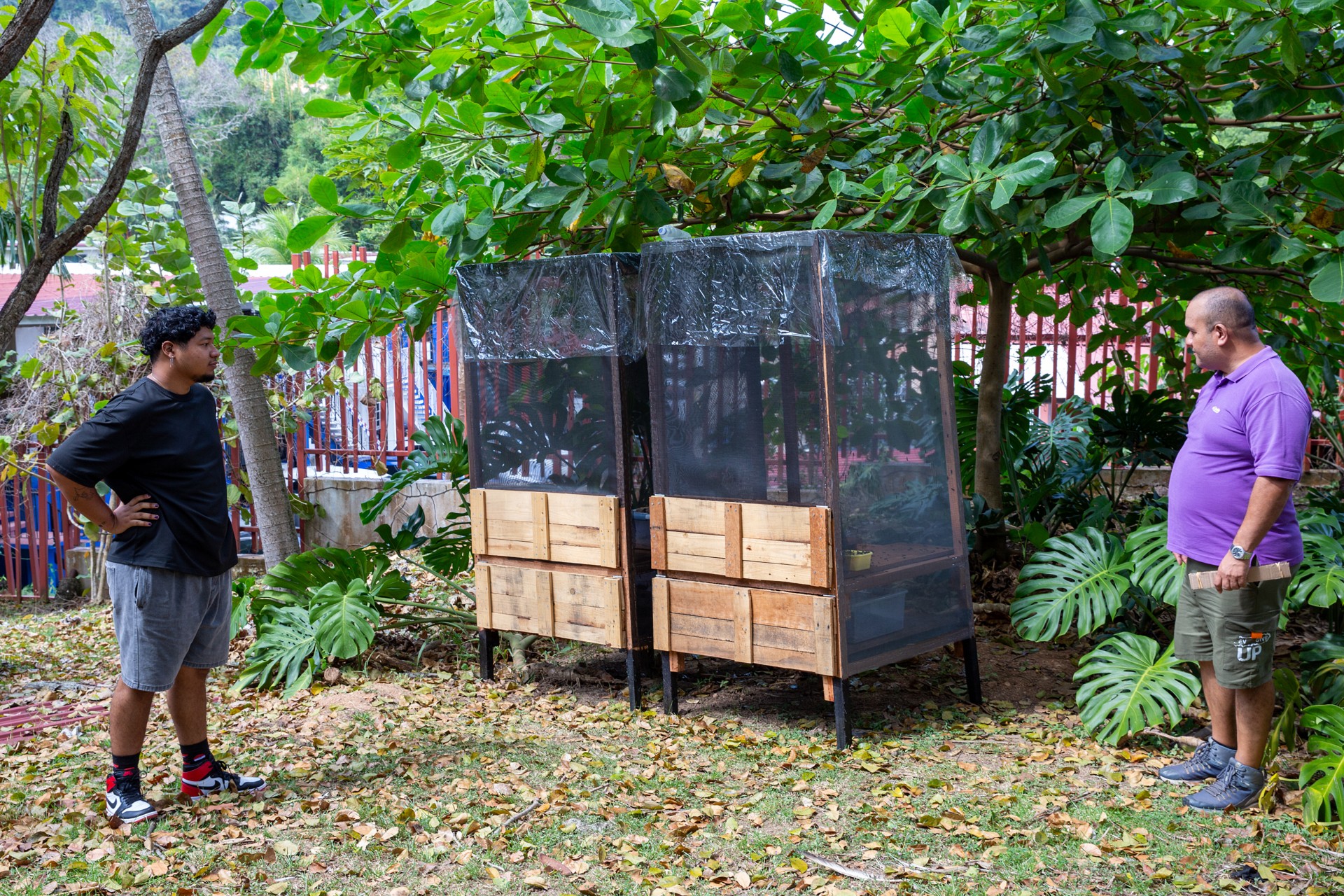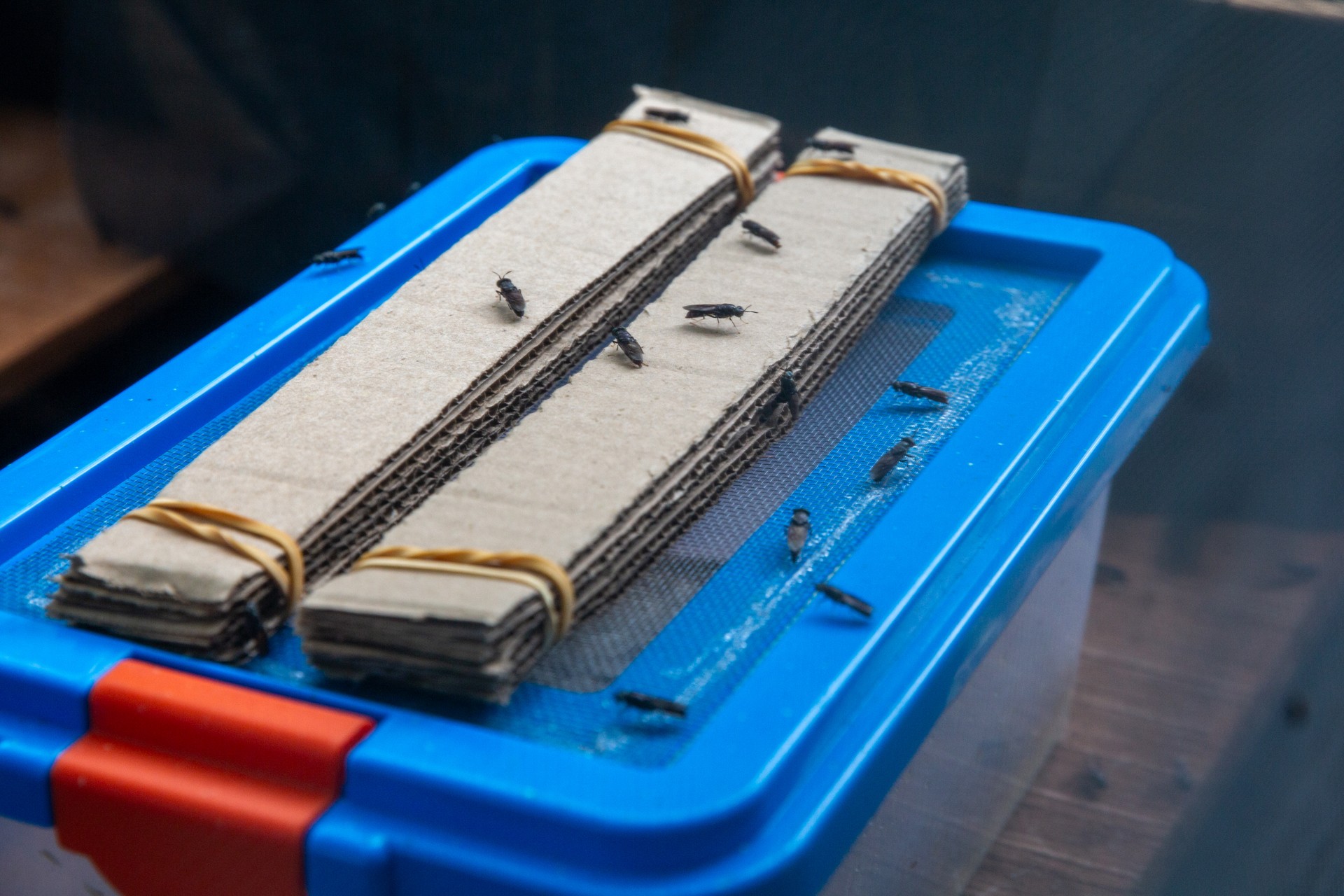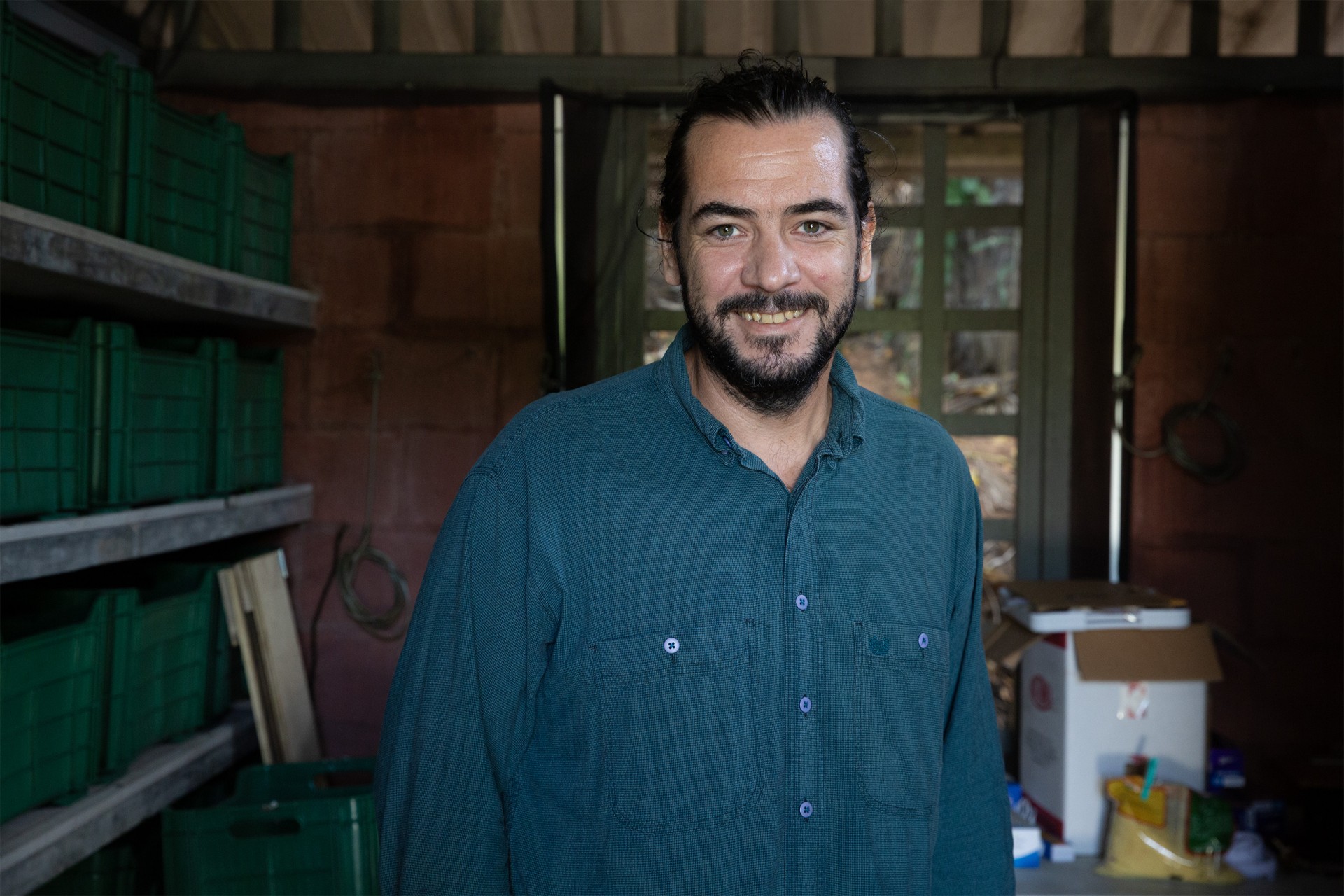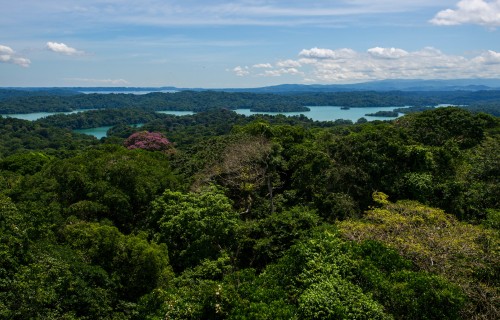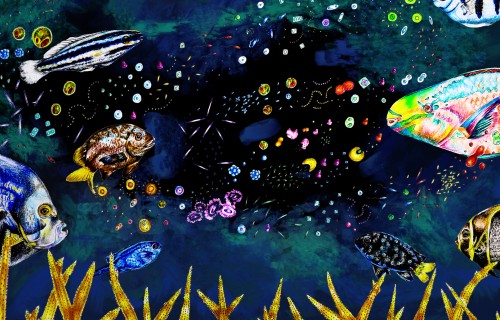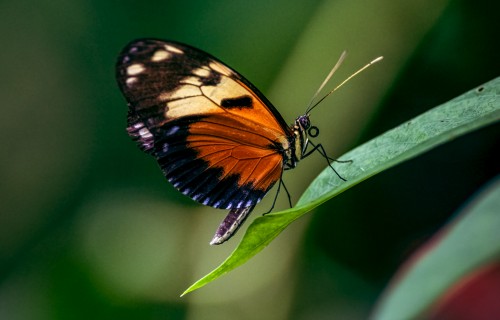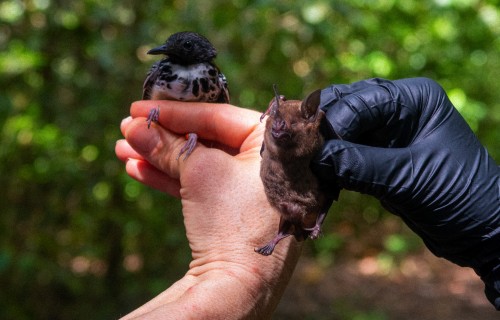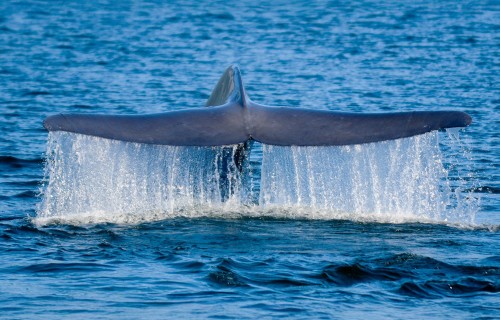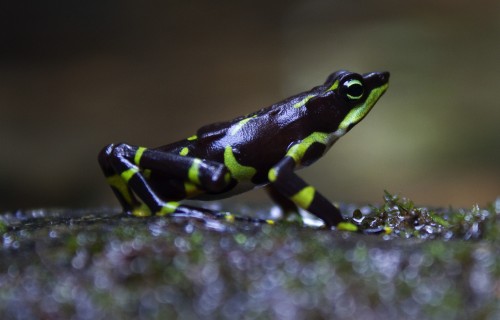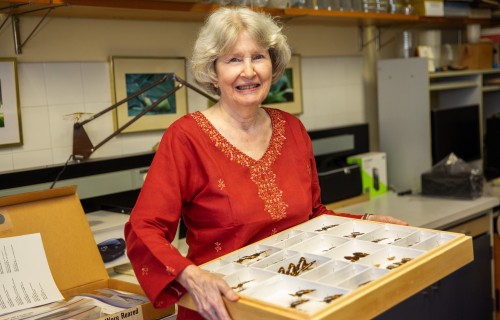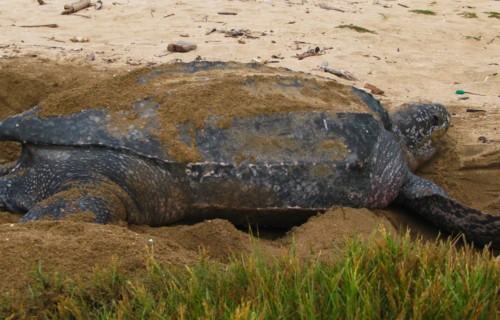Smithsonian science helps understand blue whale migratory and foraging patterns to inform conservation strategies
The
composter fly
A composting fly could significantly
reduce organic waste in Panama
By: Rosannette Quesada H.
An innovative and low-cost project to bio-convert food scraps into fertilizer, animal feed and extractable oil using the Black Soldier Fly.
Often people kill flies or at least try to make them go away. But at the Smithsonian Tropical Research Institute (STRI), researchers are breeding a remarkable fly called Black Soldier Fly (Hermetia illucens): a slender, elongated, and stylish fly that looks more like a wasp. And what it can do with food scraps is mind-blowing.
The females lay from 500 to 1000 eggs per day in organic material. In just 4 days the eggs hatch into voracious larvae craving to eat organics like food scraps, and transforming them into frass, which is something similar to compost and can be used as a soil fertilizer. The larvae also produce antimicrobial substances, reducing the growth of bacteria that could cause bad smells in compost containers. These eating machines eventually transform into pupae and then into new adults that continue the cycle. But that is not the end of the story. Besides upcycling organic waste, the Black Soldier Fly larvae contain high amounts of protein, lipids, and valuable amino acids, which are consumable by chickens and fish, providing the perfect food for small poultry and aquaculture farms. Moreover, because Black Soldier Fly larvae contain fatty acids and yield up to 70% of extractable oil, they are a promising candidate for bioenergy production.
Recently, there has been substantial interest in using this fly for organic waste management, as the larvae could solve one of the main environmental problems of modern society: the mass production of food waste and overflowing landfills.
With this in mind, Smithsonian scientists Greg Lamarre and Yves Basset started a new pilot project to bio-convert the food waste produced at STRI facilities into high-quality protein and frass using Black Soldier flies. As team members Braulio Bonilla and Gilberto Bolaños explain, the process starts in a large mesh cage, nearly the size of a person. Inside, they place the pupae in a container. Once they emerge, the adults mate, and the females lay their eggs between layers of cardboard placed above chicken feed, which serves as bait to attract them to the cardboard. After that, researchers take the eggs to the laboratory, where the larvae will hatch. For the first seven days, the larvae feed on chicken feed, and in the next 15-21 days they devour shredded food scraps from the cafeteria and several bins placed in strategic places inside the building.
Eventually, the larvae pupate and hatch into more adults that will continue the cycle. As larvae can adapt to a wide variety of diet content and the duration of the larval stage and amount of organic waste larvae they can process is affected by temperature, the team will measure population growth rate and larval performance to quantify how much organic material can be processed with different types of food scraps. One advantage of establishing this project in Panama is that the Black Soldier Fly can be bred outside, as they develop well in the tropical warmth.
Greg Lamarre is the STRI research associate in charge of the Black Soldier Fly compost project.
Credit: Jorge Alemán
This is an innovative low-cost project, in which one species of fly can transform organic waste into three products: high-quality frass that can be used as an efficient organic fertilizer for plant growth, a high-quality protein and suitable food source for poultry and fish farms and, an extractable oil that can be transformed into biodiesel; a promising and environmentally friendly way to decrease solid waste production and relieve existing landfills. The project has received funding from the Secretaría Nacional de Ciencia y Tecnología (SENACYT), and if it is successful, the team plans to extend it to municipalities in Panama and to local Panamanian farms. This research perfectly embodies the essence of applied science and presents a great opportunity for the Smithsonian to implement a scientific project locally to tackle a pressing societal issue by using a remarkable fly!
Black Soldier flies larvae feeding on shredded food scraps.
Credit: Jorge Alemán


